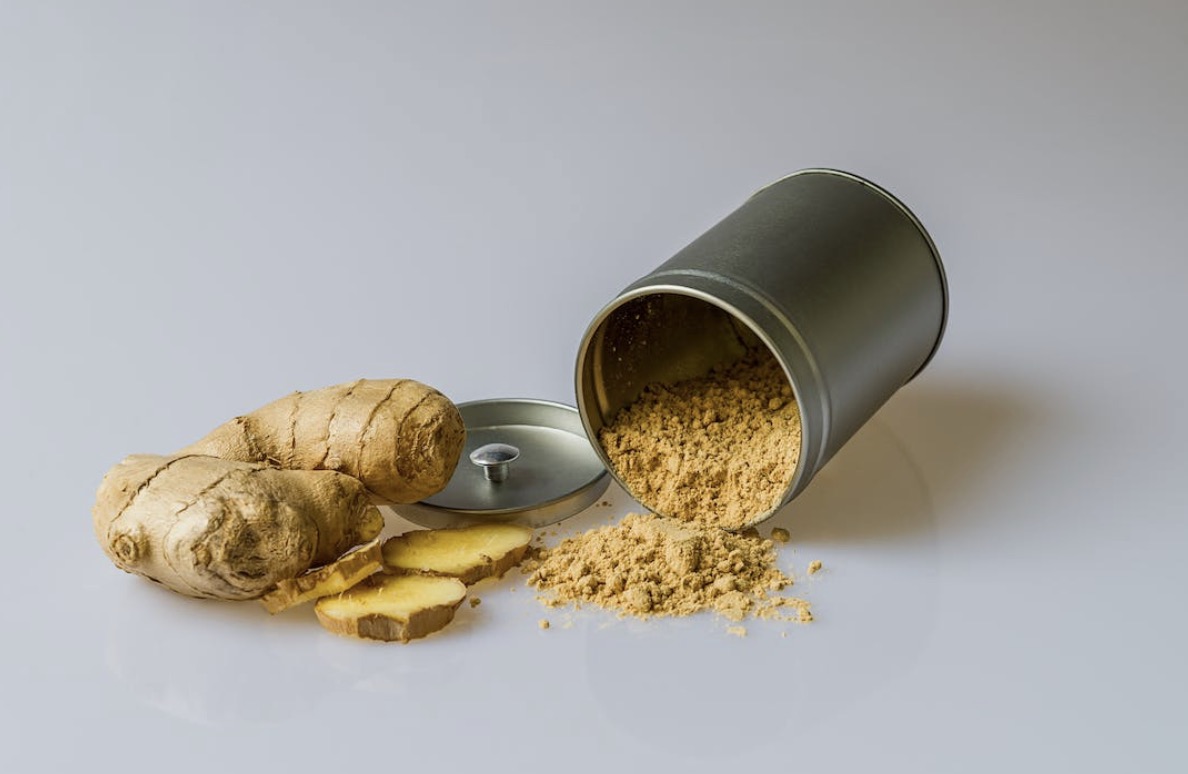Ginger, a versatile and aromatic spice, has been a cornerstone in traditional medicine for centuries. Not only does it add a flavorful kick to numerous dishes, but it also boasts a plethora of health benefits that can enrich our well-being. From soothing an upset stomach to reducing inflammation, the therapeutic potential of this humble root is truly remarkable.
This guide will explore the myriad ways ginger serves as a natural medicine, underscoring how incorporating it into your daily diet can yield significant health dividends. If you’re looking to add a bit of spice and wellness to your life, look no further than the powerful effects of ginger!
Reader's Roadmap
The Therapeutic Power of Ginger
Ginger is packed with a wealth of active compounds that can provide ongoing health benefits, including the antioxidants gingerols and shogaols. These phytomolecules have been linked to reducing inflammation, relieving nausea, and preventing chronic disease. For instance, studies have shown that consuming ginger daily can help lower LDL cholesterol levels and reduce oxidative stress in patients with high blood pressure.
Ginger is renowned for its capacity to alleviate digestive problems and provide relief from symptoms of an upset stomach. When consumed, it promotes saliva production, aids digestion, and eases intestinal muscles, facilitating the smoother passage of food through the digestive tract. Namely, ginger may be good for acid reflux, as it helps reduce stomach acidity and diminishes abdominal pain. After a large meal, try drinking a cup of ginger tea to help ease digestion. Having a routine cup of ginger tea can also boost your metabolism and energy levels.
Combat Morning Sickness
If you’re pregnant, ginger can be an effective way to combat morning sickness. Studies have found that taking supplements of ginger extract while pregnant may help alleviate the nausea associated with early pregnancy. Ginger can also reduce some of the more uncomfortable symptoms experienced during PMS, such as bloating and cramps.
Some people like to make ginger tea by slicing up fresh ginger and steeping it in hot water; the scent of ginger helps reduce nausea. Having a cup of ginger tea as soon as you wake up can help set the tone for a healthy pregnancy, and it’s also an excellent way to boost your energy levels.
Boost Immune System Functionality
Ginger has long been viewed as an effective immune system booster due to its high concentration of antioxidants and anti-inflammatory compounds. Incorporating ginger into your daily diet can help reduce inflammation, improve circulation, and strengthen immune system functionality. To maximize the benefits of ginger, try to purchase organic fresh ginger root or powdered ginger from a reliable source. You can also add freshly grated ginger to your favorite dishes for an extra boost of flavor and health benefits.
Pain Relief and Anti-Inflammation

Ginger’s anti-inflammatory properties are particularly advantageous for those who suffer from joint inflammation, arthritis, or muscle pain. Ginger contains many compounds that have analgesic (pain-reducing) properties, so it’s often recommended for those dealing with chronic pain. Studies have indicated that ginger may be as effective as nonsteroidal anti-inflammatory drugs (NSAIDs) when it comes to relieving arthritis and joint pain. Additionally, ginger can also help reduce inflammation in the respiratory tract and aid in treating upper respiratory infections.
For people who suffer from sinus congestion, drinking ginger tea can help clear your airways and make breathing easier. Not only does ginger provide natural pain relief, but it’s also a safe and affordable alternative to prescription medications.
Heart Health
Ginger is a heart-healthy addition to any diet. Its antioxidants help reduce bad cholesterol levels and improve circulation, which can decrease your risk of heart disease and stroke. Ginger also helps relax the blood vessels, allowing for more efficient delivery of oxygen to the entire body. Adding ginger to your diet may help lower your risk for hypertension, as it helps keep your blood pressure levels in check.
On the other hand, too much ginger can have an adverse effect on your heart health. Excessive intake of ginger may cause palpitations or a rapid heartbeat, so it’s important to consult with your doctor before incorporating large amounts into your daily diet.
Skin Benefits
Consuming ginger can help reduce inflammation, and its antioxidants may help protect your skin from free radical damage. Additionally, the anti-inflammatory properties of ginger can help reduce acne scars and blemishes.
If you’re looking to apply ginger directly to your skin, try making a facial mask with fresh ginger and honey. This combination helps to hydrate the skin, reduce wrinkles, and even out your complexion. For a soothing bath, add some freshly grated ginger or ginger oil to help relax tense muscles and promote circulation. If you are experiencing sunburn, ginger can help reduce redness and inflammation.
Stress Relief

Studies have found that ginger extract can help reduce cortisol levels, which is responsible for the “fight or flight” response. Additionally, the antioxidants in ginger help improve circulation and decrease inflammation throughout the body, thereby promoting a sense of relaxation. If you’re feeling overwhelmed with stress, try drinking a cup of ginger tea or munching on some fresh ginger. Doing so can help you relax and unwind after a long day.
Furthermore, the distressing symptoms of menopause can be effectively managed by incorporating ginger into your routine. Scientific studies have revealed that a daily intake of ginger extract can significantly alleviate hot flashes, night sweats, and mood swings that are commonly experienced during menopause. So, if you are seeking a natural remedy to find relief from menopause symptoms, consider incorporating ginger into your daily diet.
Ginger’s Potential As An Antibiotic
In addition to providing numerous health benefits when ingested, ginger may also be used as an antibiotic. Research has indicated that extracts from the root can effectively kill off certain bacteria and inhibit their growth. Studies have found that ginger extract may help fight against antibiotic-resistant strains of bacteria, making it a potentially useful tool for combating superbugs. When combined with other natural antibiotics, such as oregano oil or garlic, ginger can be a powerful tool in fighting infection.
Ginger is a remarkably versatile root that offers a plethora of health benefits. It can aid digestion, alleviate nausea, boost the immune system, offer pain relief, support heart health, enhance skin condition, and even act as a stress reliever and potential antibiotic. However, as with any natural remedy, it’s essential to use ginger in moderation and consult with a healthcare professional before incorporating it in large amounts into your routine. Whether you enjoy it in your tea, add it to your meals, or utilize it as a topical treatment, ginger provides a natural, affordable, and potent way to support your overall well-being.







Leave a Reply
View Comments